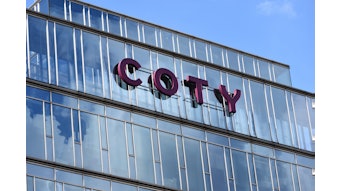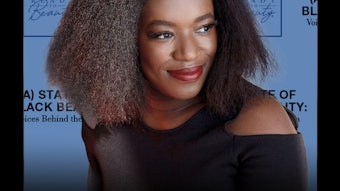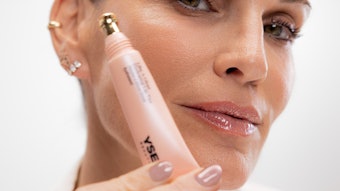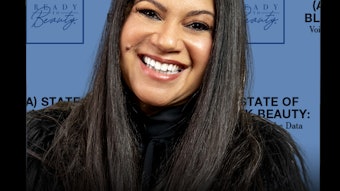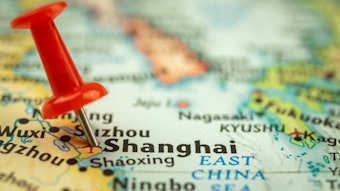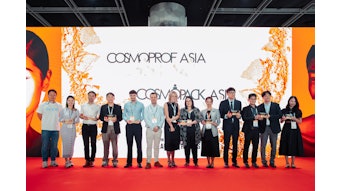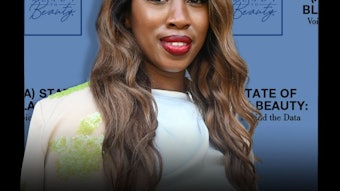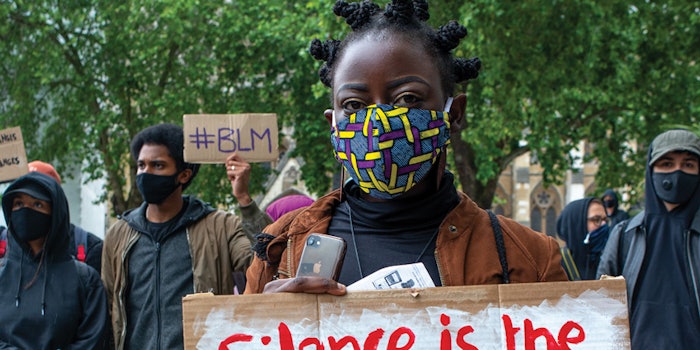
No question: 2020 continues to be the most transformative period in my career. As an editor, I find myself repeatedly scrapping my plans, assumptions and typical modes of operation in favor of a rapidly evolving reality. What makes sense in the morning is irrelevant by evening.
COVID-19 and the burst of widespread protests against white supremacy have caught many people and organizations off guard. But, while the novel coronavirus is a truly new threat, systemic racism and its implications are unfortunately not.
Despite this, beauty has found itself as challenged in reckoning with Black Lives Matter as it was the global pandemic. However, as with the pandemic, everyone from indies to multinationals appear to be pivoting quickly and picking up the tempo of accountability and progress beyond preexisting inclusivity programs.
For example, Pull Up or Shut Up, a transparency and change initiative led by Uoma Beauty founder Sharon Chuter, has shed light on the fact that while Black people comprise 13.4% of the U.S. population, they make up only 8% of white collar workers. This presents a major deficit in wealth-building potential.
Beauty’s largest multinationals and trendy indies responded to Pull Up or Shut Up’s challenge, revealing that Black representation almost universally lagged behind that of other disenfranchised groups.
For instance, Briogeo, a Black-owned business, came in at 50% Black representation and 67% Black + non-Black people of color representation. In comparison, L’Oréal USA reported 9% Black representation in manufacturing, 7% in the corporate level and 8% at the executive level, while disruptive beauty brand Glossier reported 9% Black participation in the company overall, with no Black representation at the VP or above levels.
Organizations appear to be getting the message. L’Oréal which, in 2017, disassociated itself with spokeswoman Munroe Bergdorf over her Black Lives Matter support, has joined L’Oréal’s U.K. diversity and inclusion advisory board.
Estée Lauder has outlined a wide-ranging plan to boost racial equity within the U.S. organization, including meeting U.S. population parity for Black employees at all levels of the organization in the next five years and doubling the amount it spends on sourcing ingredients, packaging materials and supplies from Black-owned businesses over the next three years.
In addition, Sephora has responded to an Instagram challenge by @aurorajames by pledging to designate 15% of its shelf space to Black-owned brands and auditing how many Black women hold executive levels within the company. It also intends to evolve its Accelerate program—which, for its 2020 cohort, includes nine Black-owned brands out of 50—by focusing on women of color in the 2021 cohort.
Black-owned brands have also seen increased awareness, according to new data from Spate (@spatenyc on Instagram). In just one week in early June 2020, Spate found that select Black-owned/-founded brands experienced significant gains in awareness, including Oui the People (up 1,150%), Uoma Beauty (up 925%), Black Girl Sunscreen (up 733%) and KNC Beauty (up 567%).
For years I have covered beauty’s push toward “inclusivity” in pursuit of greater equity and a desire to tap into the spending of “multicultural” consumers. This historic moment will show whether the industry can truly live its values and deliver real empowerment, even amidst a global health and economic crisis.
I believe that it’s ultimately up to the task and am excited for what is next.
Until next month, be well.
Jeb Gleason-Allured
Editor in Chief

